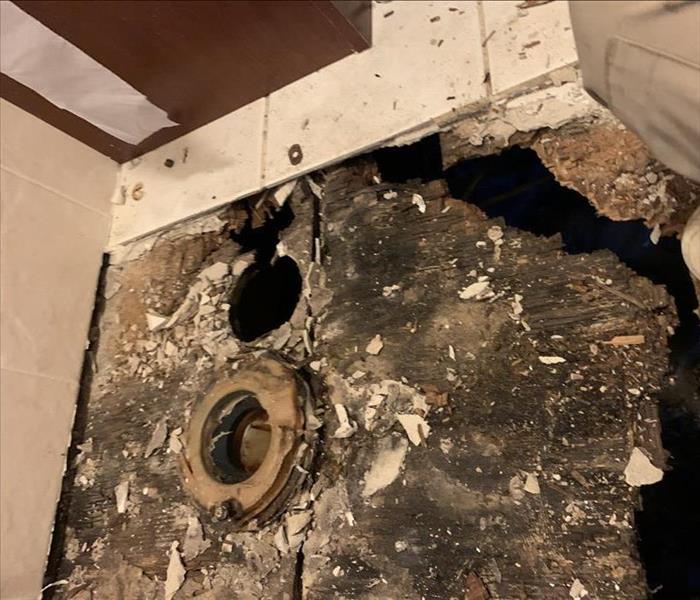Mold in Rental Properties: Tenant and Landlord Responsibilities
3/20/2024 (Permalink)
 Trust SERVPRO® to efficiently and effectively address mold concerns and restore your rental property.
Trust SERVPRO® to efficiently and effectively address mold concerns and restore your rental property.
Mold in rental properties can be a significant concern, impacting both tenants and landlords. Understanding the responsibilities of each party is crucial for preventing mold growth, addressing issues promptly, and maintaining a safe living environment. In this blog post, we'll explore the responsibilities of tenants and landlords in dealing with mold in rental properties.
Tenant Vigilance
Tenants play a vital role in mold prevention through vigilance and awareness. Regularly inspect your living space for any signs of mold, such as musty odors, visible discoloration, or water stains. Report these concerns to your landlord promptly. Early detection can prevent the escalation of mold issues and contribute to a nicer living environment.
Proper Ventilation
Tenants can take proactive measures to minimize the risk of mold growth. Ensure proper ventilation by using exhaust fans in bathrooms and kitchens. Adequate ventilation helps reduce humidity levels, making it less conducive for mold to thrive. Additionally, allowing air to circulate by not blocking vents or air ducts can contribute to a drier environment.
Prompt Reporting of Issues
Tenants should promptly report any water leaks, plumbing problems, or signs of water damage to their landlords. Timely reporting allows landlords to address the root causes of moisture and take preventive measures against mold growth. Clear communication between tenants and landlords is essential for a swift response to potential mold issues.
Landlord Maintenance
Landlords are responsible for maintaining the property and addressing potential sources of moisture. Regular inspections, especially before new tenants move in, can help identify existing mold problems and ensure they are remedied. Landlords should also conduct routine maintenance, such as roof and plumbing inspections, to prevent water intrusion and mitigate the risk of mold growth.
Swift Response to Water Damage
Both tenants and landlords should prioritize a swift response to water damage. Whether it's a leaky roof, burst pipe, or appliance malfunction, immediate action is necessary to prevent mold from taking hold. Landlords should have an emergency response plan in place, and tenants should report water damage promptly for efficient remediation.
Professional Mold Remediation
If mold is discovered, landlords should hire professional mold remediation services like SERVPRO®. Certified mold remediation experts can assess the extent of the issue, develop a comprehensive remediation plan, and restore the property to a mold-free condition. Tenants should cooperate with the remediation process and follow any instructions provided by the professionals.
Open Communication
Maintaining open communication between tenants and landlords is crucial for addressing mold-related concerns effectively. Tenants should document their communication, including notifications of mold issues and responses received. Landlords should keep records of inspections, maintenance, and remediation efforts. This documentation fosters transparency and helps prevent disputes.
Preventative Measures
Preventing mold in rental properties requires a proactive approach. Landlords can take preventative measures such as installing proper ventilation systems, using mold-resistant materials, and addressing water issues promptly. Tenants can contribute by practicing good housekeeping habits, promptly reporting leaks, and ensuring proper ventilation in their living spaces.
A collaborative effort between tenants and landlords is essential for preventing and addressing mold issues in rental properties. By understanding and fulfilling their respective responsibilities, both parties can contribute to creating a safe and mold-free living environment. For professional mold remediation services, trust SERVPRO® to efficiently and effectively address mold concerns and restore your rental property.




 24/7 Emergency Service
24/7 Emergency Service